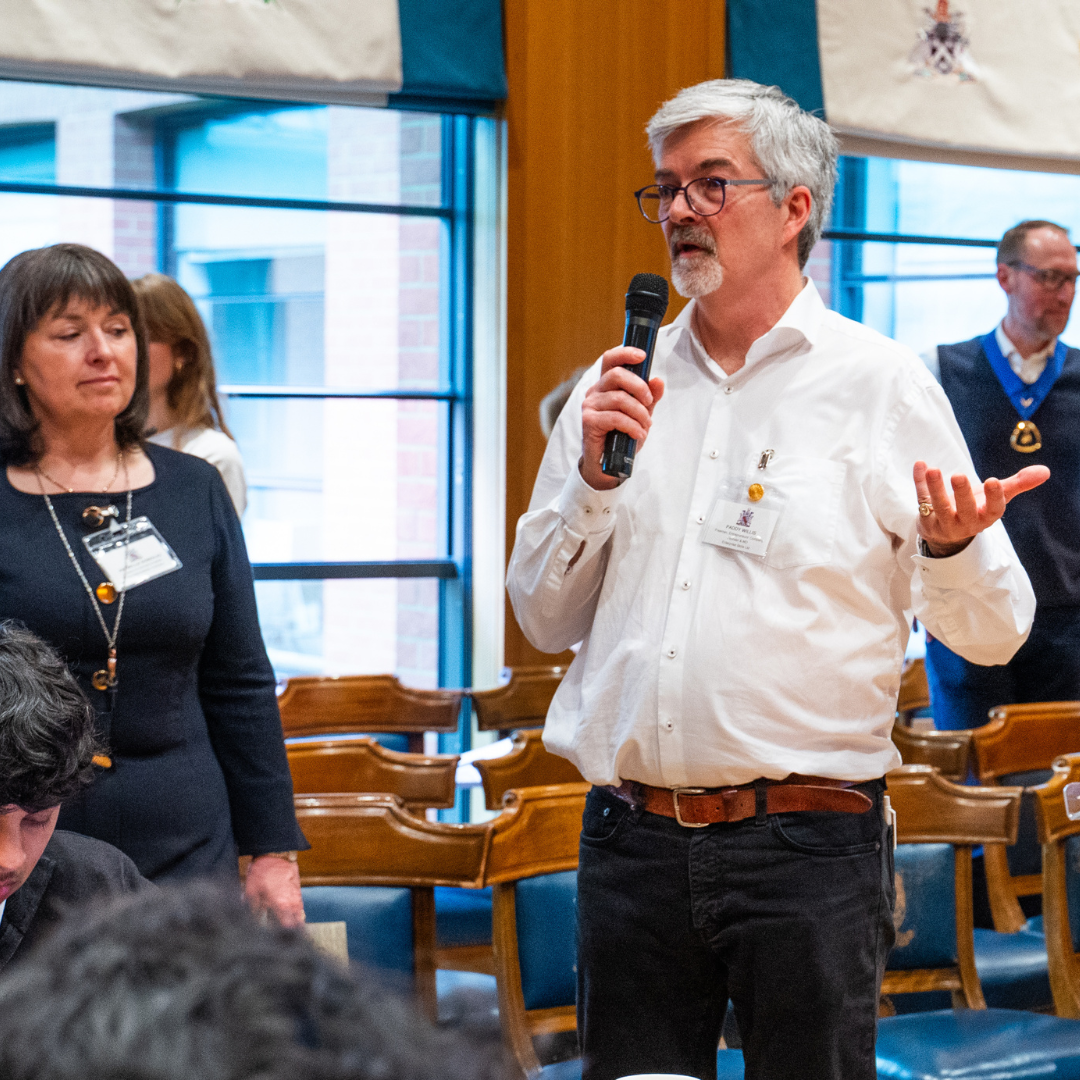Every year, thousands of academically excellent students are rejected from competitive universities. They have the grades, the extracurriculars, and the motivation. With acceptance rates at top universities like Oxford and Cambridge hovering around 16-21% [1, 2], it is clear that academic achievement alone is not enough to guarantee a place. So why don’t they get offers?
They lack the business skills that admissions tutors actually want to see.
The Hidden University Selection Criteria
University admissions have evolved beyond grades and personal statements. Admissions tutors now look for students who demonstrate:
- Analytical thinking beyond subject-specific knowledge: The ability to deconstruct problems, identify patterns, and use evidence to make sound judgments, regardless of the subject matter.
- Real-world awareness of how society and economy function: A practical understanding of the forces that shape our world, from the dynamics of a local market to the complexities of global trade.
- Problem-solving skills that transfer across disciplines: The capacity to tackle unfamiliar challenges with a structured and creative approach, whether in a scientific lab or a historical debate.
- Commercial understanding that enhances any field of study: An appreciation for how value is created, how organizations operate, and how financial realities influence decisions in any profession.
- Critical evaluation abilities for complex scenarios: The skill of assessing information from multiple perspectives, questioning assumptions, and forming nuanced conclusions.
These are business skills. And they’re becoming essential for competitive university applications.
The Skills Universities Actually Look For
Our research with admissions tutors have identified four critical business skills that consistently make an application stand out. These are not just buzzwords for a personal statement; they are frameworks for thinking that can be developed, practiced, and demonstrated.
1. Systems Thinking
What it is: Systems thinking is the ability to understand how different parts of a complex system interact with and influence one another. It’s about seeing the whole picture, not just the individual components.
Why universities want it: The world’s biggest challenges are complex systemic problems. Universities want students who can grapple with this complexity, regardless of their chosen field. This holistic perspective is a hallmark of a sophisticated intellect.
How business skills develop it: At its core, a business is a system. Managing a business, even in a simulated environment, forces students to see the connections between marketing, operations, finance, and strategy. This hands-on experience of managing interconnected variables builds a powerful and intuitive understanding of systems thinking.
2. Stakeholder Analysis
What it is: Stakeholder analysis is the ability to identify all the parties involved in a situation, understand their different perspectives, and appreciate their competing interests.
Why universities want it: The ability to understand and manage stakeholder interests is crucial. It demonstrates maturity, empathy, and a nuanced understanding of real-world complexity.
How business skills develop it: Running a business provides a masterclass in stakeholder management. Students in a business simulation quickly learn that they cannot simply focus on maximising profit for shareholders. They must also consider the needs of their employees, customers, suppliers, and even the government. Juggling these competing priorities is a core challenge of business, and it builds a deep appreciation for the complexities of stakeholder analysis.
3. Resource Allocation Under Constraints
What it is: This is the process of making optimal decisions when you don’t have enough resources (time, money, people) to do everything you want. It’s the science of trade-offs.
Why universities want it: Every field of study and every profession is governed by constraints. Universities want students who can think strategically about how to make the most of what they have. This demonstrates a practical, results-oriented mindset.
How business skills develop it: Business is a constant exercise in resource allocation. Business simulations force students to make these tough choices and live with the consequences. They learn to analyse opportunity costs and to make data-driven decisions to maximize their return on investment.
4. Risk Assessment and Management
What it is: This is the ability to identify potential problems before they happen, assess their likelihood and potential impact, and develop strategies to mitigate them.
Why universities want it: The ability to anticipate and manage risk is a sign of a mature and responsible thinker. Universities want students who can think ahead, consider unintended consequences, and make well-reasoned judgments in the face of uncertainty.
How business skills develop it: Businesses operate in an environment of constant uncertainty. Business simulations teach students to think like strategists, constantly scanning the horizon for potential risks. They learn to develop contingency plans and to make decisions based on a calculated assessment of the potential rewards and dangers.
The Personal Statement Advantage
These skills don’t just transform interviews; they revolutionise the personal statement. They allow students to move beyond generic claims of interest to specific, evidence-based demonstrations of their passion and insight.
Before Business Skills:
I am passionate about economics and have always been interested in how markets work. I have read several books about economic theory and achieved high grades in my A-Levels. I believe studying economics at university will help me understand the world better.
Admissions tutor reaction: Generic, theoretical, forgettable.
After Business Skills:
Managing a virtual technology startup taught me why economic models often fail to predict real behaviour. When I raised prices expecting demand to fall, sales actually increased because customers perceived higher quality. This experience sparked my fascination with behavioural economics and the gap between theoretical models and human psychology. I want to study how psychological insights can improve economic policy-making.
Admissions tutor reaction: Specific, insightful, memorable.
Start Your Free Trial Now – Transform Your Child’s Business Studies Success Today
How to Develop These Essential Skills
So, how can a student develop these game-changing business skills? Reading books and articles is a good start, but it’s not enough. To truly internalise these ways of thinking, students need to experience them.
This is where traditional education often falls short. Textbooks can explain the theory of supply and demand, but they can’t make you feel the pressure of a price war with a competitor. A classroom lesson can define stakeholder analysis, but it can’t replicate the challenge of balancing the competing demands of angry customers and anxious shareholders.
To develop these skills, students need to learn by doing. They need to be put in situations where they have to make decisions, manage resources, and respond to a changing environment. This is the philosophy behind business simulations.
Platforms like Enterprise Skills’ Skills Hub are designed to bridge this gap between theory and practice. They provide students with a safe and engaging environment to run their own virtual businesses. By making real decisions with real consequences, students develop the intuitive understanding of business that admissions tutors are looking for.
With over 115 interactive lessons mapped to the specific syllabus points of all major UK exam boards, students can directly apply what they are learning in the classroom to a realistic business scenario. This is not about playing games; it is about experiencing the core principles of business in a dynamic and memorable way. The platform is designed to deliver tangible results, with students showing an average grade improvement from C to B in just eight weeks of use.
Your Next Step to a University Offer
The path to a top university is more challenging than ever. Excellent grades are the entry ticket, but they are not the winning ticket. The students who succeed are those who can demonstrate a deeper level of understanding, a more nuanced way of thinking, and a genuine intellectual curiosity.
Developing your business skills is the most effective way to build this intellectual firepower. It will transform your personal statement, revolutionise your interview performance, and give you the confidence to stand out from the crowd.
Don’t just learn about the world; learn how it works. Start developing the business skills that get offers today.
Ready to build the skills that will get you noticed?
Visit the Enterprise Skills Hub and start your 2-month free trial. Develop the practical business acumen that top universities are looking for and turn your application from one of many to one of a kind.
Start Your Free Trial Now – Transform Your Child’s Business Studies Success Today
References
[1] University of Oxford. (2024). Annual Admissions Statistical Report. Retrieved from https://www.ox.ac.uk/sites/files/oxford/AnnualAdmissionsStatisticalReport2024.pdf
[2] UniAdmissions. (2024). Cambridge Acceptance Rate 2024 – The Definitive Guide. Retrieved from https://www.uniadmissions.co.uk/application-guides/cambridge-acceptance-rates/
[3] Oxford Tutors. (2024, May 22). What makes an exceptional Oxbridge candidate? Retrieved from https://oxfordtutors.com/2024/05/22/what-makes-an-exceptional-oxbridge-candidate/
[4] Enterprise Skills. (2025). Skills Hub Subscription. Retrieved from https://access.enterpriseskills.co.uk/public/subscription





